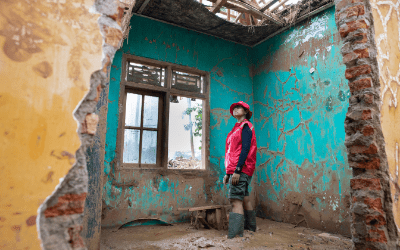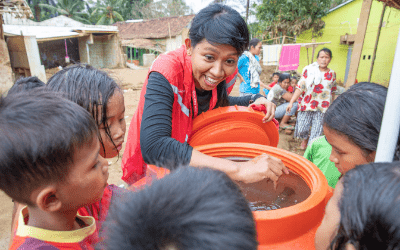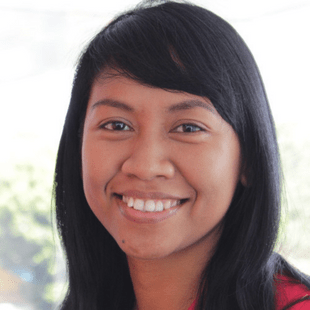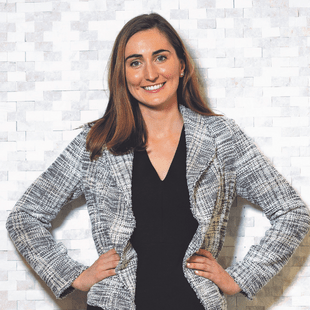Solving Water in Crisis-Affected Communities
For millions, disasters are not one-time events but an ongoing reality as communities around the world face increasingly severe and frequent disasters. Xylem Watermark’s Emma Housman spoke with Piva Bell from our NGO partner Mercy Corps, to learn how Piva and her colleagues at Mercy Corps are responding to the water, sanitation and hygiene (WASH) needs of crisis-affected communities.
Emma: Throughout our decade long partnership, we’ve developed a huge amount of trust in Mercy Corps as a partner and learnt a great deal in relation to how we can best support you. That’s led to the creation of our Emergency Response Fund, which allows Mercy Corps to pre-position funding to quickly initiate disaster response. Can you tell me about some of the challenges you’ve encountered in facilitating access to WASH, which make this funding model beneficial?
 Piva: One challenge is the unpredictability of precisely when a disaster will strike and the need to respond urgently. In the aftermath of a crisis, we know that access to WASH is typically one of the most urgent needs and a vital first step to rebuilding lives and livelihoods. The COVID-19 pandemic has underscored the foundational role WASH plays in keeping communities healthy and safe. Mercy Corps’ partnership with Xylem, and the flexible funding model, allows us to deliver critical life-saving support as soon as disaster strikes. Whether we are mobilizing after an earthquake, flooding or other natural disasters, we can respond immediately and effectively, helping communities recover quicker.
Piva: One challenge is the unpredictability of precisely when a disaster will strike and the need to respond urgently. In the aftermath of a crisis, we know that access to WASH is typically one of the most urgent needs and a vital first step to rebuilding lives and livelihoods. The COVID-19 pandemic has underscored the foundational role WASH plays in keeping communities healthy and safe. Mercy Corps’ partnership with Xylem, and the flexible funding model, allows us to deliver critical life-saving support as soon as disaster strikes. Whether we are mobilizing after an earthquake, flooding or other natural disasters, we can respond immediately and effectively, helping communities recover quicker.
Emma: Mercy Corps has been a great partner to us at Xylem, particularly for my colleagues living in areas at high-risk of water-related disasters, working with us to optimize our own preparedness. Can you tell me about living in an area that’s been devastated by climate-related disasters?
Piva: For millions, disasters aren’t one-time events but an ongoing reality. People around the world are, year after year, hit with increasingly severe and frequent disasters. This is especially true in Indonesia. On average at least one major natural disaster has occurred in Indonesia every month since the 2004 tsunami.
Emma: We often take our access to water for granted and in disaster situations that can be the first thing we lose. How do Mercy Corps’ WASH interventions change lives for the communities you serve?
 Piva: Over the years, we’ve partnered with Xylem to respond to earthquakes, tsunamis and flooding in Indonesia. Clean water and proper hygiene are critical for people to stay healthy, especially in emergencies where access to these essentials provides the foundation for longer-term development. After torrential rains in early 2020 caused flash floods and landslides, we partnered with Xylem to address urgent and longer-term clean water needs. We provided water trucking to communities that were accessible by vehicles. For those that weren’t, which were many, we designed and constructed water points based on the local needs and context. In areas that had limited access to electricity for water pumps, we installed rainwater harvesting systems. For water points that had lower water quality, we installed water filters using local materials such as sand, gravel and activated charcoal made from coconut shells. All in all, we reached nearly 7,000 people with improved access to clean water so they could cook, drink, wash and bathe safely. At Mercy Corps, we work alongside communities such as these to build back stronger, so they are more prepared for the challenges that lie ahead.
Piva: Over the years, we’ve partnered with Xylem to respond to earthquakes, tsunamis and flooding in Indonesia. Clean water and proper hygiene are critical for people to stay healthy, especially in emergencies where access to these essentials provides the foundation for longer-term development. After torrential rains in early 2020 caused flash floods and landslides, we partnered with Xylem to address urgent and longer-term clean water needs. We provided water trucking to communities that were accessible by vehicles. For those that weren’t, which were many, we designed and constructed water points based on the local needs and context. In areas that had limited access to electricity for water pumps, we installed rainwater harvesting systems. For water points that had lower water quality, we installed water filters using local materials such as sand, gravel and activated charcoal made from coconut shells. All in all, we reached nearly 7,000 people with improved access to clean water so they could cook, drink, wash and bathe safely. At Mercy Corps, we work alongside communities such as these to build back stronger, so they are more prepared for the challenges that lie ahead.
Emma: The COVID-19 pandemic has changed the way that we’ve worked with our NGO partners and underscored the importance of WASH services to our underlying health. How has the work you do changed during the pandemic?
 Piva: While the pandemic has affected everyone, it has not affected everyone equally. Many of the worst impacts are falling on the people and communities who are already living through dire circumstances. The spread of COVID-19 and the efforts to contain it have exacerbated hunger, poverty, conflict and inequality, making everyday life more difficult and dangerous for many people. For these reasons, Mercy Corps has cemented our focus on building resilient communities, so they have the tools and resources they need no matter the disaster.
Piva: While the pandemic has affected everyone, it has not affected everyone equally. Many of the worst impacts are falling on the people and communities who are already living through dire circumstances. The spread of COVID-19 and the efforts to contain it have exacerbated hunger, poverty, conflict and inequality, making everyday life more difficult and dangerous for many people. For these reasons, Mercy Corps has cemented our focus on building resilient communities, so they have the tools and resources they need no matter the disaster.
“In some locations in Indonesia, government funding that was supposed to be used for disaster recovery had to be diverted to support COVID-19 prevention and containment efforts. As a result, many people are still living in tents months after the disaster.”
Emma: It’s obviously an incredibly challenging task for the teams on the ground, but I imagine it is also rewarding to see the impact. A new element of our partnership is to dedicate funding to scale solutions to address the root causes of water scarcity, access and water-related disasters. What do you see as the biggest opportunities to make a difference into the future?
 Piva: I’m excited to see how our partnership can evolve as Mercy Corps increases focus on helping communities adapt and build resilience to the changing climate. Erratic storms, droughts, flooding, and conflict over scarce natural resources are all becoming more frequent. This is very much true here in Indonesia. WASH services are even more important for these communities who are experiencing the harsh daily impacts of the climate crisis.
Piva: I’m excited to see how our partnership can evolve as Mercy Corps increases focus on helping communities adapt and build resilience to the changing climate. Erratic storms, droughts, flooding, and conflict over scarce natural resources are all becoming more frequent. This is very much true here in Indonesia. WASH services are even more important for these communities who are experiencing the harsh daily impacts of the climate crisis.
Learn more about Xylem Watermark’s work in disaster response and get involved in our global preparedness and volunteer efforts here.
Since this piece was published, Mount Semeru, one of Indonesia’s most active volcanoes, erupted on Saturday, December 4, killing more than 30 people and forcing thousands to flee from their homes. Mercy Corps and their local partners quickly activated and began assessing the situation. Over 3,600 people have been forced to flee their homes and are now staying in 19 displacement camps. They are in need of support, with thousands more impacted. People urgently need shelter, clean water and food, but it is difficult to reach the camps due to lava flows, ashy mud, fallen trees, and a collapsed bridge.
Despite these challenges, the Mercy Corps team and their local partners have begun to take action. After conducting needs assessments, teams are moving forward with plans to utilize Xylem Watermark’s Emergency Response Fund to provide hygiene kits, and clean drinking water. If you’d like to contribute directly to the response efforts in Indonesia, you can make a donation through Xylem Watermark’s Community Impact Portal, where Xylem Watermark will match your donations.


 Piva Bell is Program Performance and Quality and Indonesian Response Team Manager for the global humanitarian organization Mercy Corps. Piva has spent the last thirteen years supporting people in her homeplace of Indonesia to recover from crisis, build better lives and transform their communities for good. She tells us what inspired her:
Piva Bell is Program Performance and Quality and Indonesian Response Team Manager for the global humanitarian organization Mercy Corps. Piva has spent the last thirteen years supporting people in her homeplace of Indonesia to recover from crisis, build better lives and transform their communities for good. She tells us what inspired her: Emma Housman is the Program Manager for Xylem Watermark, Xylem’s Corporate Social Responsibility program. Emma studied Global Health at Georgetown University, and during her studies, she spent time in Tanzania interning for the National Institute of Medical Research. She joined Xylem following roles with non-profit organizations in the United States and Botswana where she worked on issues ranging from climate change, environmental justice, mental health and HIV/AIDS.
Emma Housman is the Program Manager for Xylem Watermark, Xylem’s Corporate Social Responsibility program. Emma studied Global Health at Georgetown University, and during her studies, she spent time in Tanzania interning for the National Institute of Medical Research. She joined Xylem following roles with non-profit organizations in the United States and Botswana where she worked on issues ranging from climate change, environmental justice, mental health and HIV/AIDS.